Should chaplains be allowed in Oklahoma's public schools? Lawmakers, faith leaders sound off
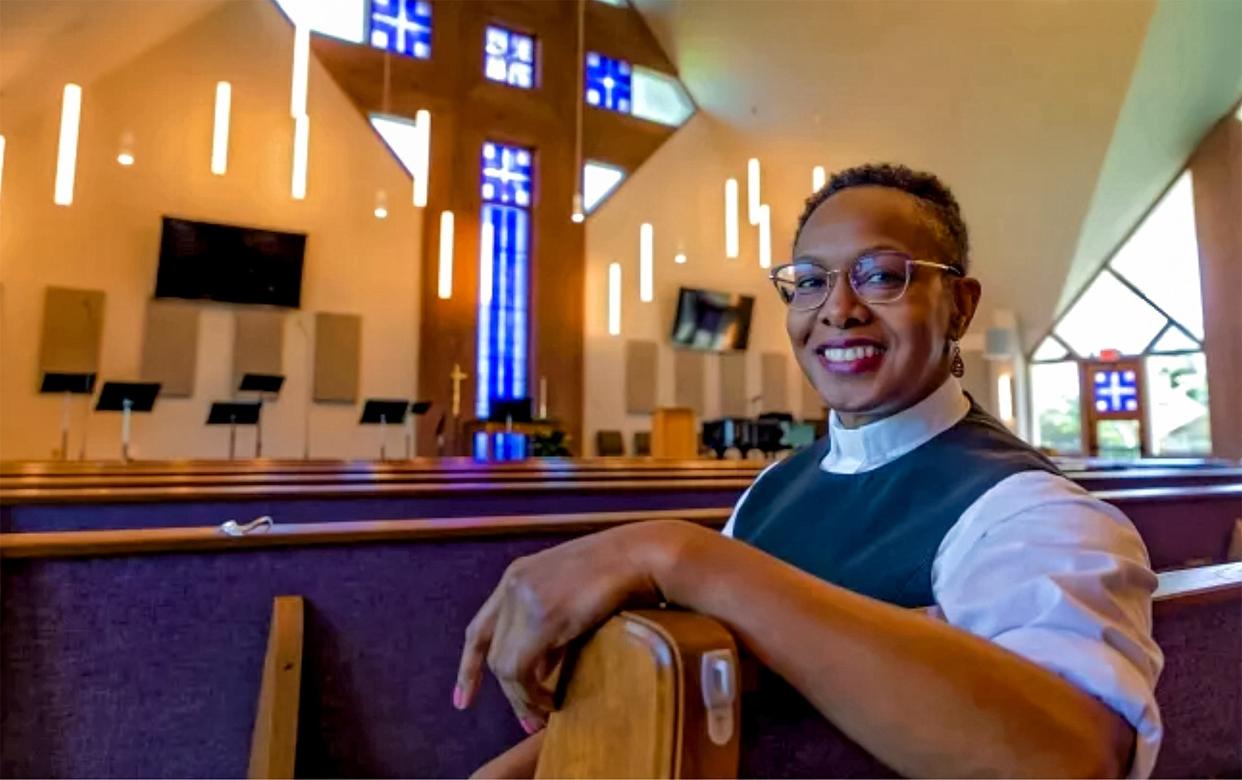
An Oklahoma faith coalition is sounding the alarm about several proposed bills that would allow public schools to hire faith-based chaplains or accept them as volunteers without requiring certification ― proposals similar to a new law in Texas.
The Rev. Shannon Fleck, executive director of the Oklahoma Faith Network, said her organization has taken to social media to alert Oklahomans about several bills, including House Bill 3122, authored by Rep. Danny Williams, R-Seminole; House Bill 3543, authored by Sherrie Conley, R-Newcastle; and Senate Bill 1984, authored by Sen. Shane Jett, R-Shawnee.
Among her concerns are the high possibility of chaplains proselytizing in public school settings, schools using public funds to hire faith-based chaplains and the bills' lack of chaplain training/certification requirements.
More: Gov. Stitt quoted Scripture in a recent speech, but religious leaders are taking issue. Here's why.
The Rev. Valerie Steele, senior pastor of Quail Springs United Methodist Church, said Oklahomans have plenty of religious options without sending chaplains into public schools.
"If people are looking for Jesus, or looking for a religious outlet, there's plenty of churches and synagogues, and mosques and what have you in Oklahoma," Steele said.
And, Brian Warfield, Integris Health assistant manager of pastoral care, said he sees the bills as an effort to insert religion in schools.
"I feel like it's kind of another appearance of Christian nationalism ― their model of what the country is supposed to look like," he said.
But Johnny Davis, chief development officer of the Norman-based National School Chaplain Association, said chaplains are embedded in other areas of society such as corporate America, the military, sports teams, the U.S. Senate and hospitals — why not public schools?

His organization helped Texas lawmakers craft a chaplaincy bill in 2023 and it is working with Oklahoma legislators, as well. The chaplain association's website also features Gov. Kevin Stitt's video message for Mission Generation, the chaplain association's parent agency. In the video that was shown at a recent event, Stitt said he loves the organization's mission of "getting more chaplains into schools."
Davis said chaplains are able to provide support and a caring presence for both public school students and staff, particularly at a time when violence, suicide, mental illness and drug abuse are taking a toll on society.
"I don't know why it's taken us so long to do this," he said. "Schools need help."
Bills' merit up for debate
HB 3122 and HB 3543, both titled the Oklahoma Freedom of Religious Expression Act, would authorize schools to employ or accept chaplains as volunteers to "provide support, services and programs for students" and "be considered eligible service providers for mental health counseling and social services." The measures would require mandatory criminal background checks for chaplains, but they would be exempt from certification requirements by the State Board of Education. Both bills have been referred to the House Appropriations and Budget Education Subcommittee.
SB 1984 would allow a school district to contract with a chaplain to perform the duties of a school counselor. The bill defines chaplain as an ordained or authorized pastor, minister, priest or other ecclesiastical dignitary of any denomination who has been ordained or authorized by the individual's church.
Fleck said Jett's bill is particularly troubling because it would allow chaplains to perform the duties of a school counselor. She said she was particularly alarmed by the idea of replacing guidance counselors because they are a "vital part of our education system."
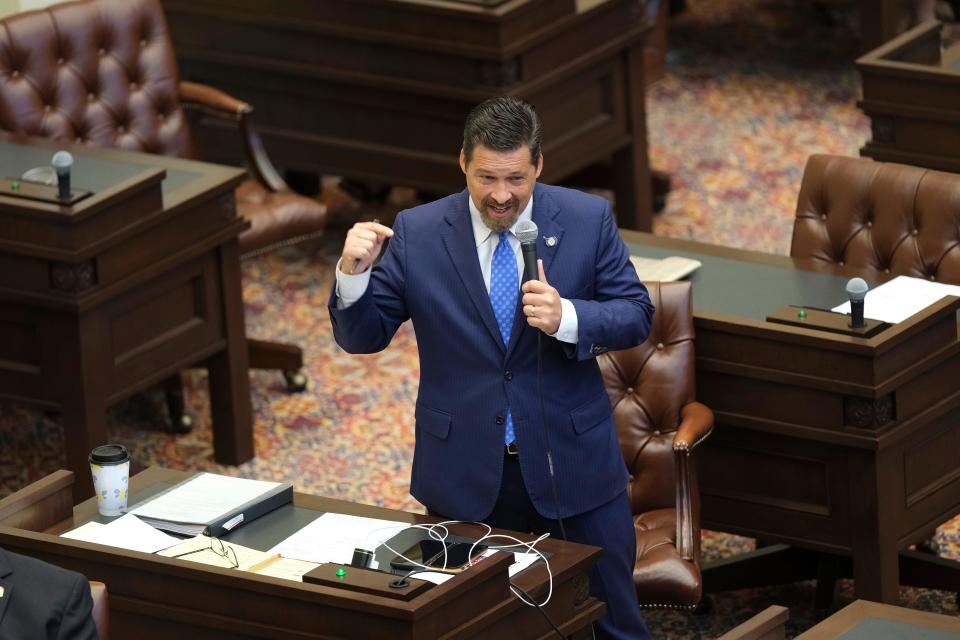
Conley and Jett could not be reached for comment, but Williams agreed to discuss his bill. He said it is essentially designed to help schools facing a shortage of school counselors. He also said schools would be able to hire or accept as volunteers chaplains of different faith traditions.
But Fleck and Steele said the bills are unsettling for many reasons.
Fleck said she is aware schools are facing a shortage of school guidance counselors, but she's not sure these bills are the solution. She said aside from the concern that chaplains will be replacing trained school guidance counselors, the faith network also is aware that denominations and faith groups have different procedures for ordaining or authorizing an individual as a faith leader. So, chaplains may come with varying degrees of training or no training, Fleck said.
"We know as faith professionals and faith leaders that ordination, or ministerial standing, is not unilateral across the board for every denomination, every faith organization and every tradition," she said. "Every denomination, every faith has their own process for how you become a faith leader. And, I know many chaplains go through intense training called Clinical Pastoral Education (CPE) to become a chaplain in places like a hospital ... but these bills are not outlining minimum requirements for these chaplains other than they have to be authorized by their faith traditions."
Fleck said the measures also don't include any verbiage to prevent chaplains from proselytizing or evangelizing or putting forward a specific religious viewpoint with young people. She said there is also the question of how schools will pay for chaplains they might hire. She asked if school districts will be allowed to pay for faith-based chaplains with public funding.
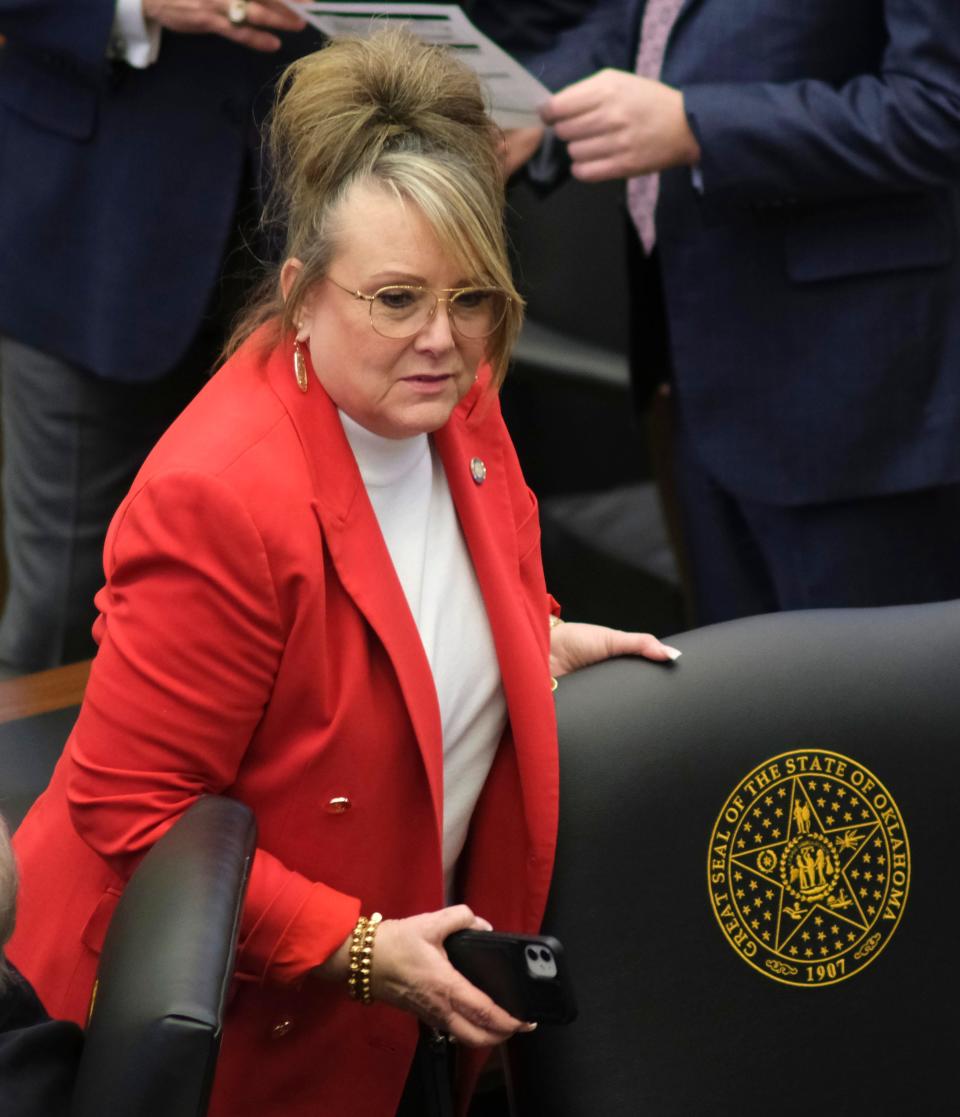
Steele said she also had concerns about the lack of training and education requirements for chaplains, but another potential problem struck her, as well. She said some chaplains, depending on their faith tradition, might discriminate against students who are part of the LGBTQ+ community, "that perhaps they possibly won't have a safe person to share with in a school setting, without the tendency for someone trying to indoctrinate them religiously."
Meanwhile, Warfield said chaplains in other areas of society have to undergo extensive training that often includes education requirements such as bachelor's and master's degrees, as well as certifications.
"We're certified through the Association of Professional Chaplains and there are strict prohibitions against proselytizing," he said. "And, again, unless you have those guidelines in place, and accountability, then I feel like it just kind of opens the door wide open. I think a lot of evangelicals are fighting the cultural war for prayer back in school. Well, who better to do the prayer back in school than bringing in a chaplain?"
Davis, with the National School Chaplain Association, said he understands some of the concerns expressed by opponents of the targeted bills, but he said such anxiety is mostly based on misinformation. He said volunteer chaplains already have been in schools, so that idea is not new.
He said critics of chaplains in public schools may say the idea flies in the face of the principle of separation of church and state, but he said the bills being considered are careful not to violate the First Amendment's Establishment Clause, which prohibits government from establishing religion. Davis said of the more than 10,000 chaplains employed in the United States, none of them are licensed by the state. He said a government agency like the Oklahoma State Department of Education could not certify a faith-based chaplain because this would be a violation of the Establishment Clause.
However, he said his organization can and does certify school chaplains. He said the National School Chaplain Association is the "world's largest provider of certified chaplains," having supplied more than 30,000 certified school chaplains in 23 countries, mostly South America.
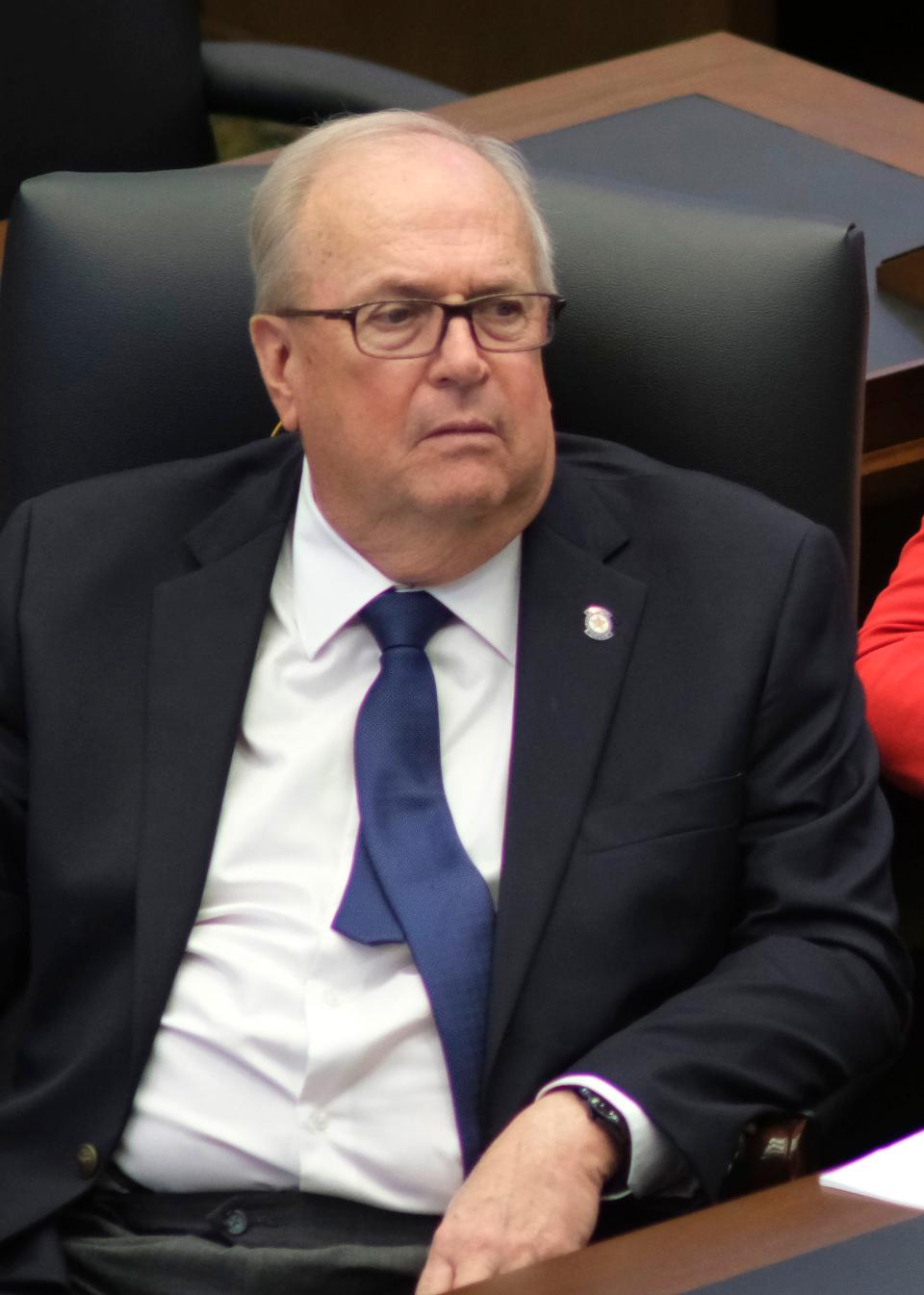
He said his association is a Christian faith-based organization but chaplains are certified to provide "nondenominational, nonsectarian and nondiscriminatory spiritual and holistic care" and do not proselytize. Davis said this is a similar approach adopted by chaplains who serve in military settings and other places.
To earn the organization's chaplain certification, individuals must complete a chaplaincy training program through Oral Roberts University, a private Christian university in Tulsa, and also undergo certification training in active shooter, Stop The Bleed and personality threat assessment, all for a fee. Davis said the association also conducts an international background check and a social media background check on would-be chaplains.
Davis said he thinks the most important aspect of the bills making their way through the Oklahoma Legislature is that they may help improve the school environment for students and teachers. He said studies have shown that many teachers, in particular, have expressed feelings of anxiety and depression and there is a "mass exodus" of educators because of this. Chaplains, he said, would play a helpful role in reducing feelings of "hopelessness" in public schools.
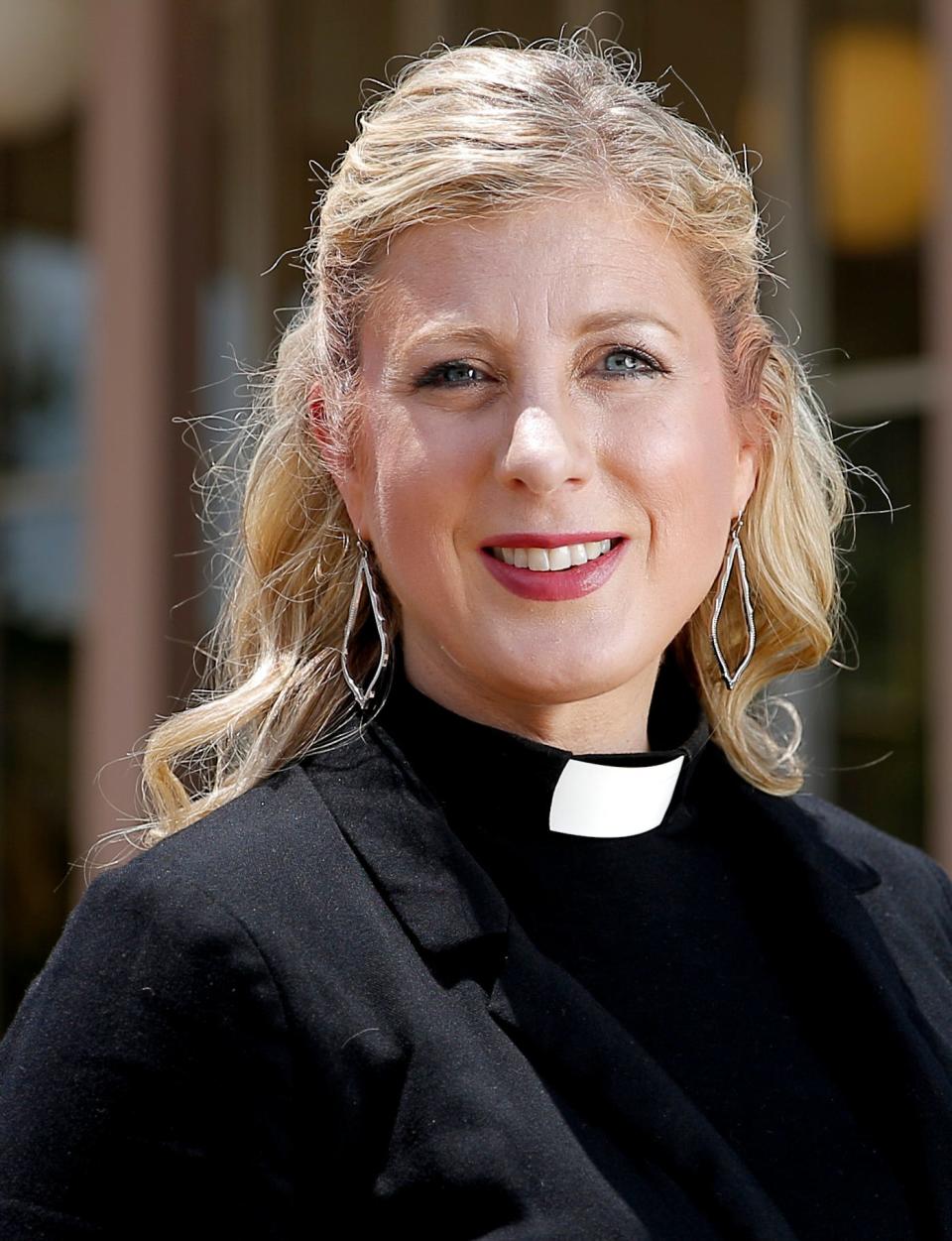
Chaplains in schools a hot topic in Texas, Florida
The trio of Oklahoma bills are similar to Senate Bill 763 passed into law in 2023 by the Texas Legislature.
Texas legislators passed SB 763 allowing public schools to hire unlicensed chaplains with safety funds, even though the measure was criticized because it did not include mandatory training requirements or define a chaplain's role in a manner that suited those in opposition of the measure. Texas lawmakers who voted to approve the bill said the measure was a way to support school districts facing a shortage of school counselors.
The issue continues to be a hot topic in Texas because school districts across the state have until March 1 to decide whether or not they will allow chaplains in their schools.
The Baptist Joint Committee for Religious Liberty, Interfaith Alliance and Texas Impact, an interfaith grassroots network, sent school districts across Texas a letter signed by more than 100 Texas chaplains urging school leaders to reject the chaplain law.
"Because of our training and experience, we know that chaplains are not a replacement for school counselors or safety measures in our public schools, and we urge you to reject this flawed policy option: It is harmful to our public schools and the students and families they serve," the letter stated. "There is no requirement in this law that the chaplains refrain from proselytizing while at schools or that they serve students from different religious backgrounds."
Similar chaplain bills are being considered in both houses of the Florida Legislature. Kansas is also debating the issue, along with several other states.
What is the Oklahoma Faith Network?
The faith-based nonprofit Oklahoma Faith Network was formerly known as the Oklahoma Conference of Churches. Founded in 1972, the statewide faith coalition includes mainline denominations like the Episcopal Diocese of Oklahoma, the Oklahoma United Methodist Conference, Evangelical Lutheran Church in America, Presbyterian Church USA and United Church of Christ, as well as other faith groups and individual churches.
The organization changed its name in 2022, with leaders saying the new moniker better describes the coalition that has expanded its membership and partnerships to include interfaith houses of worship, secular nonprofits and corporations.
This article originally appeared on Oklahoman: 3 Oklahoma bills would let public schools hire faith-based chaplains

